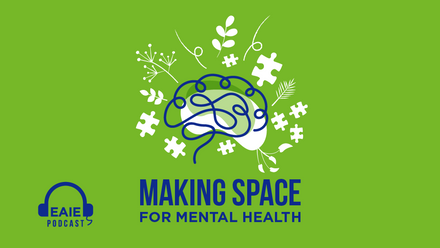5 unique mental health stressors faced by international students

International Student Mobility is unequivocally changing the academic, social and political landscape in higher education. As universities compete globally to attract the best students, they have to address the unique mental health concerns of their new international community. Transnational mobility presents challenges for university staff providing psychological support and crisis management. This blog post outlines five unique mental health stressors affecting international students – and what you can do to respond.
At higher education institutions (HEIs), academics, tutors and front-line staff know the growing need of understanding and discussing the difficulties faced by internationally mobile students – as well as the mounting demands on their institution’s resources. A combination of proactive and reactive approaches is paramount and staff training is crucial. These are the five unique mental health issues faced by international students
1. Language barriers
Presentations, class discussions, and essays are typical examples of academic demands that may become highly stressful when performed outside the comfort zone of one’s native language. Avoiding language-intense classes and skipping reading assignments are common reactions among international students struggling with language barriers. This, in turn, can also prevent them from forming relations with natives or finding good jobs – especially if a study programme does not require speaking the host country’s native language.
2. Acculturative stress
Moving from a familiar to an unfamiliar environment can be exciting, but also quite challenging. The more dissimilar home and host cultures are, the more stressful the experience may become. International students may miss their families, their beloved national cuisine, and the sights and sounds that they associate with home. What can be even more challenging, however, is the exposure to an enormous degree of cultural diversity inside and outside the classrooms. Students may encounter tremendous difficulties adapting to unfamiliar teaching styles or getting along with peers endorsing different – if not incompatible – values and worldviews.
3. Unrealistic expectations
Since international students are admitted to international programmes because of their academic success at home, they (and their parents) tend to expect a lot. If parents have invested time and money in the education of their children, and if that investment was tied to the idea that they would support their families upon return, these expectations may turn into pressure and a burden. Underperforming students may be afraid of disappointing their parents and losing their support. They may feel ashamed and even personally threatened by the prospect of having to return home prematurely.
4. Crises originating at home
If somebody at home becomes severely ill, if parents divorce, a close relative dies, a war breaks out or other disasters strike, international students living far away may find themselves unable to help. This situation may make them feel torn between concentrating on their studies and their desire to return home. When parents won’t tell them the full story, students may feel extremely anxious sensing that there is something wrong. They may even feel helpless and guilty for not being able to support their country due to the fact that they are ‘selfishly’ taking care of their own futures.
5. Illness
As a result of the exposure to multiple stressors, international students are particularly vulnerable to developing mental disorders such as anxiety, mood and stress-related disorders. These illnesses can impact students’ functioning across multiple domains, including academia. Whereas some students are more likely to seek mental health specialists, others may not ─ especially if such problems are stigmatised in the home country. But even if they do, the issue remains that campuses may not provide counselling services and students’ health insurances may not cover psychotherapy and psychiatric treatment.
What you can do about it
Against a backdrop of the five unique mental health stressors for international students, we would like to formulate some key learning objectives for front-line staff and professionals advising and guiding international students in their various capacities:
- Gain a better understanding of mental health warning signs and the interplay between typical international student unique challenges, common mental disorders, developmental issues and acculturative stressors.
- Learn how to refute misconceptions about important offers such as psychiatric care and psychological counselling, and how to promote mental health awareness and well-being among international students.
- Gain more clarity about one’s professional role and the boundary in supporting international students presenting high levels of psychological distress and knowing how to use effective self-care methods to manage the stress associated with being first responders.
- Learn to conceptualise and implement overarching inter-departmental processes and communication structures that allow for an early detection and coordinated support of at-risk students.
- Develop agreements with culturally-sensitive local counselling and health care providers offering consultations in English and/or other languages spoken by international students – and learn how to refer them there.
- Implement effective and legally-sound admission protocols and agreements with partner universities, and promote informed decision-making regarding admission or re-entry prerequisites after mental health-based leave of absence or hospital discharge.
- Feel comfortable selecting and employing basic culturally-sensitive counselling and emotional support techniques when talking to highly distressed international students
- Know when and how to initiate emergency response in crisis situations that require immediate action.






